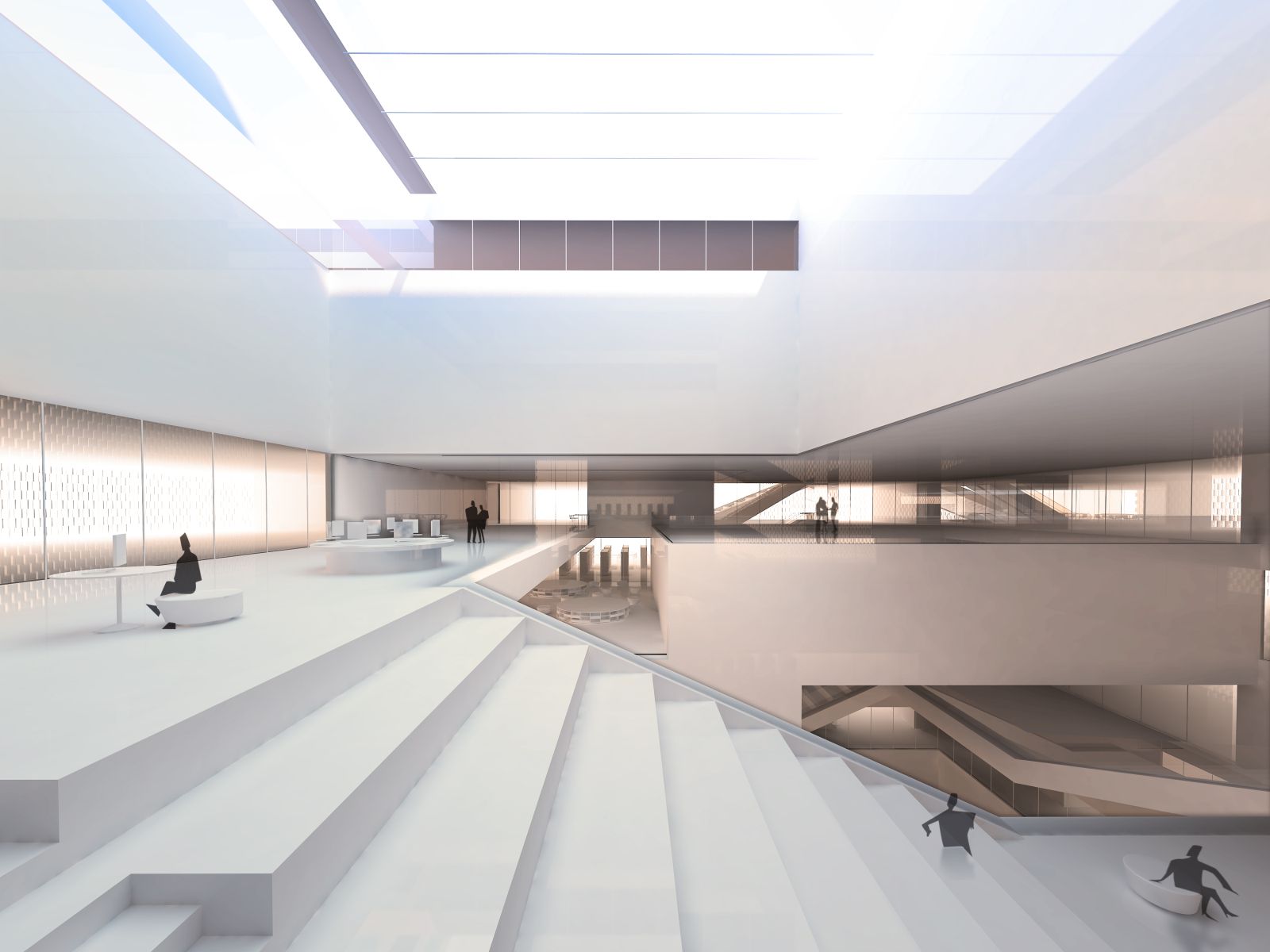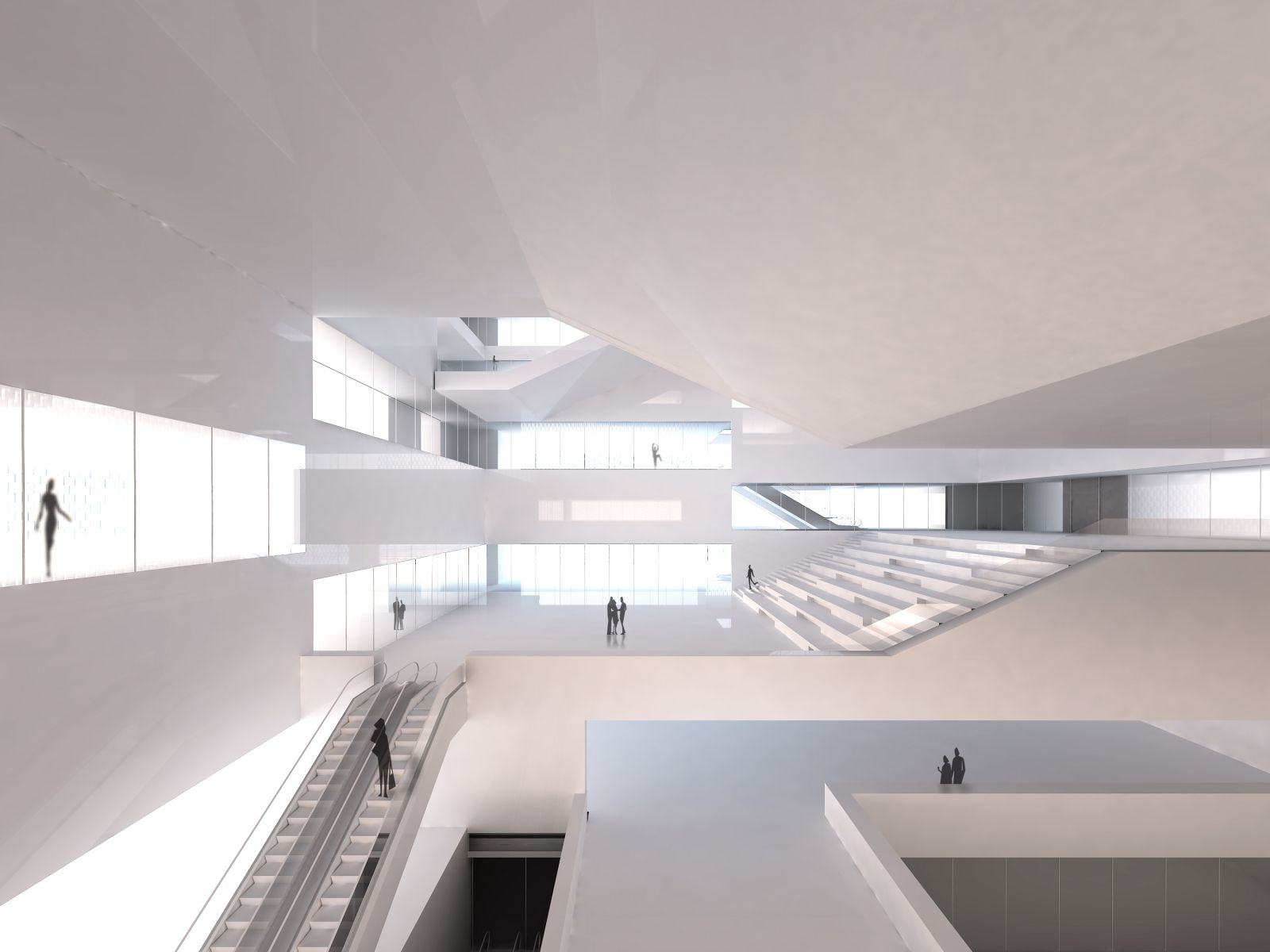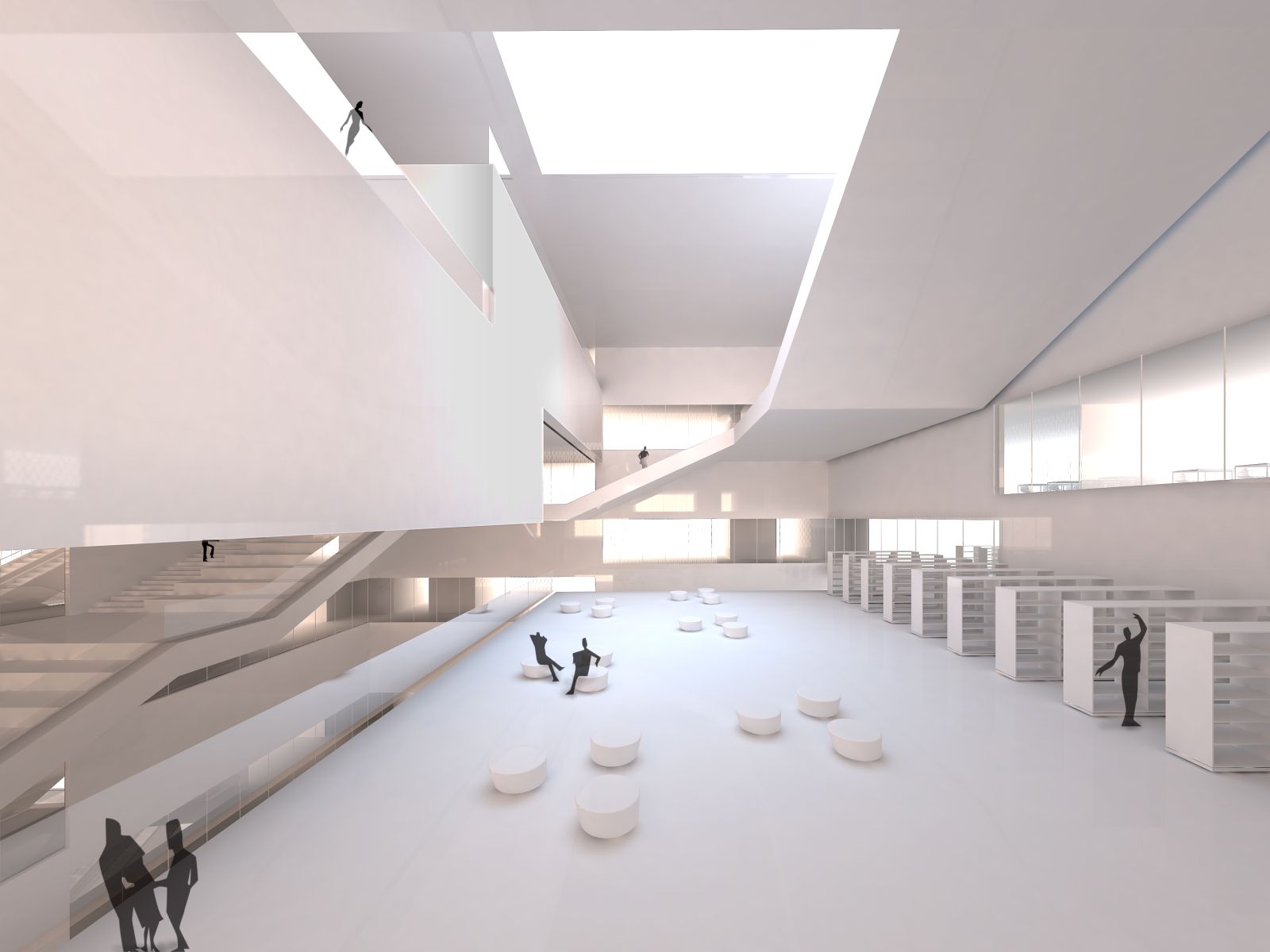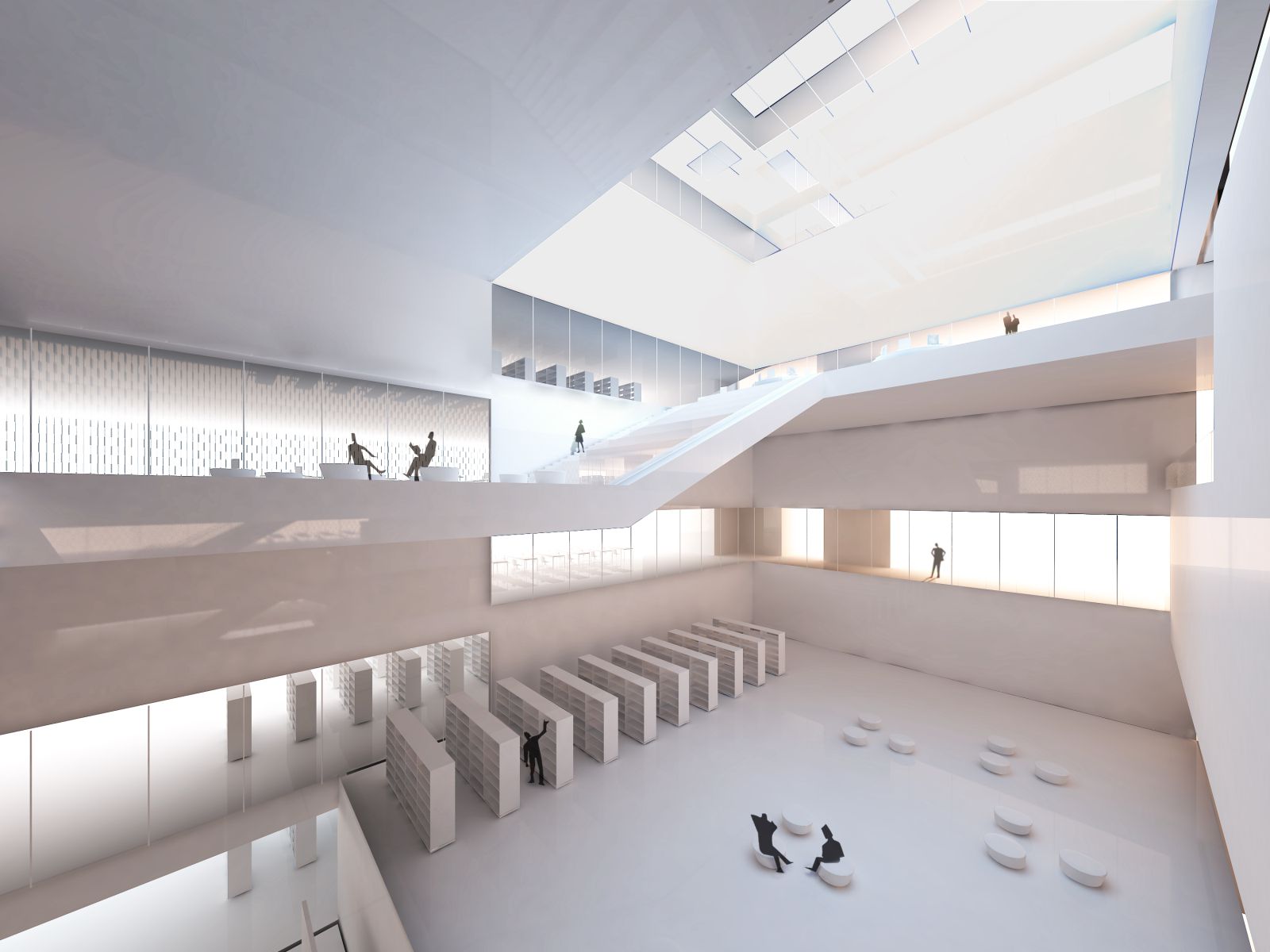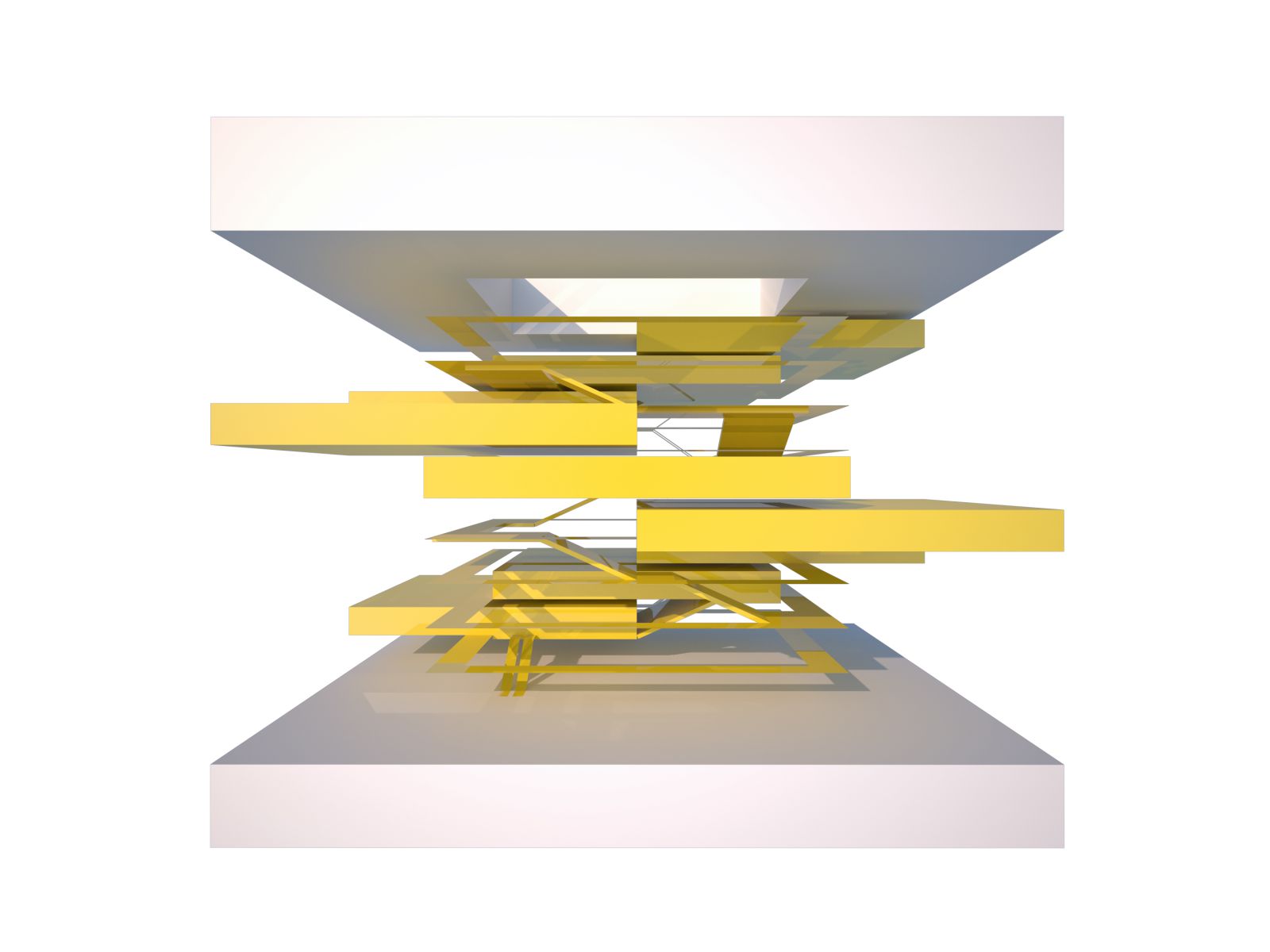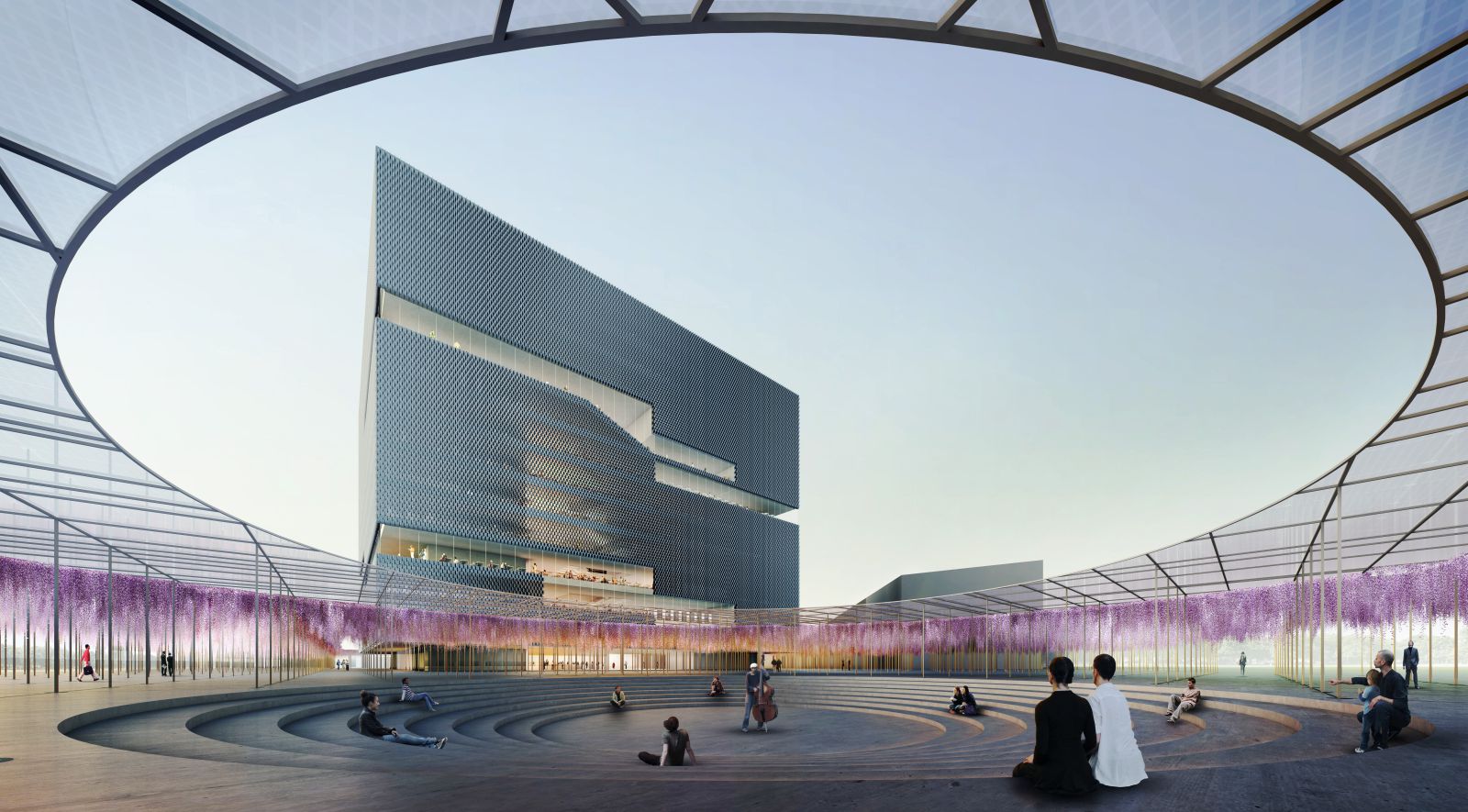The construction of a central library in the 21st century is required to meet the demands of a classic library, as well as provide low-threshold access to digital information and communication in general.
The transition from old to new also addresses the issue of urban space: the cube sits between the conflicting priorities of the new quarters and the park landscape of Tempelhofer Feld and therefore functions as a beacon.

It also needs to account for the main flows of pedestrians and the junction of public transport such as the S- and U-Bahns.
The striking structure is immediately surrounded by the „poetic mystery forest“: A wysteria canopy arching over the entire scene of the library provides a complex play of light and shadow and density and colour during the change of the seasons.
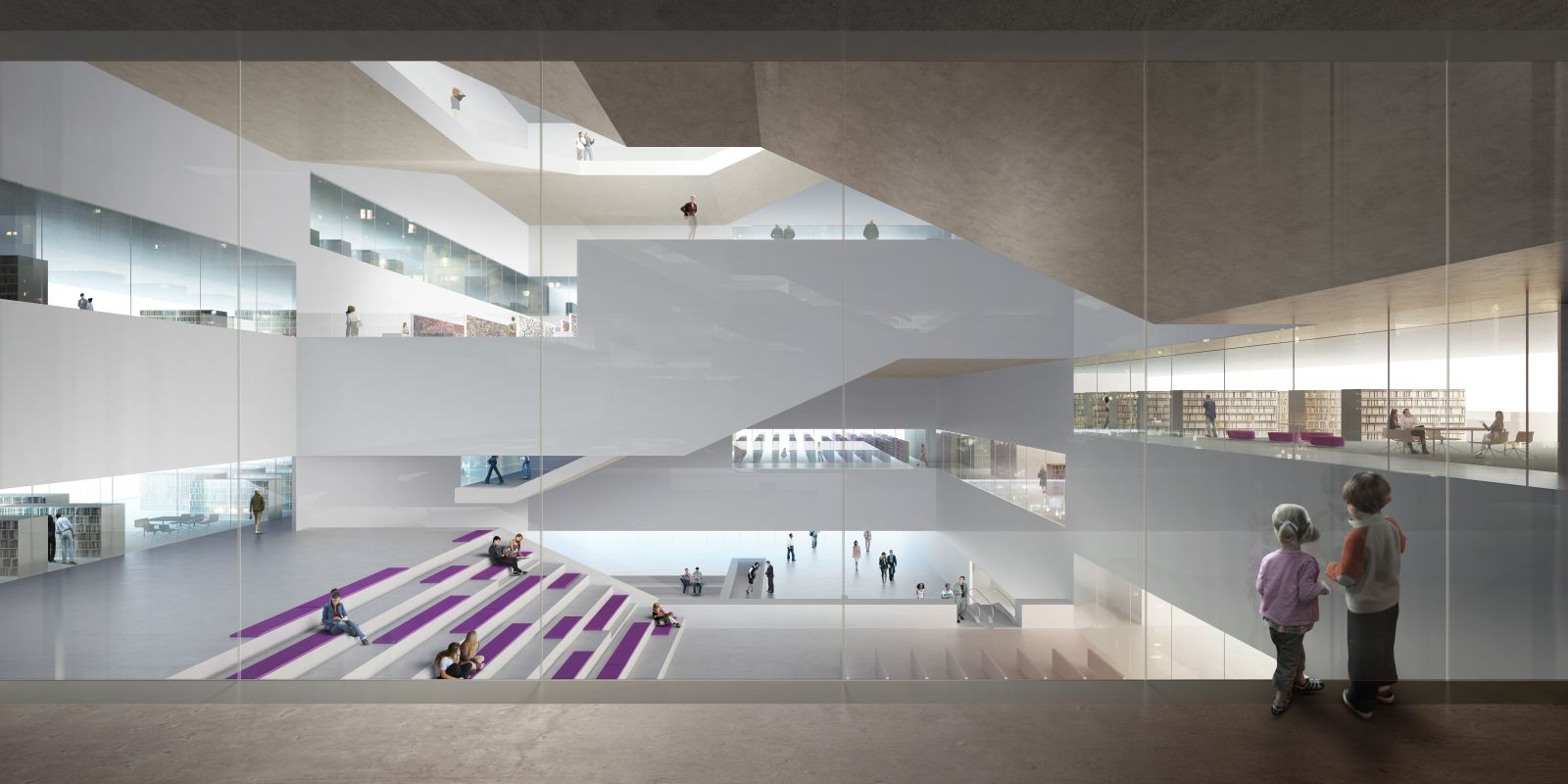
The hub function in the public foyer is carried on into the barrier-free structure itself. The public event space with restaurants on the ninth floor (the highest publicly accessible floor) acts as a counterpoint to this.
The areas of the free scene and the administration lie above this. In between are the library sections and the path for the flaneur, which represents an underlying architectural concept.

The closed stacks and shipping and disposal areas are housed in the basement.
Meeting at the levels of the library sections, the available spaces graduate from the inside, the catalog and info area graduate outwards, and the work stations graduate in their intensity.

However, special attention is thereby given to a strong visual link between the outer ring and central zone.
The materials used are kept to a minimum: warm terrazzo, concrete, and various acoustically effective surfaces.

The façade is divided into a thermally effective primary façade made from opaque and transparent elements, with a horizontal grid that makes reference to the library and office grid.
Over this primary façade a poetic-looking vertical lamella matrix is stretched, which moves about freely acting as sun protection and which changes the appearance of the building depending on the light and wind direction. Source by Delugan Meissl Associated Architects.
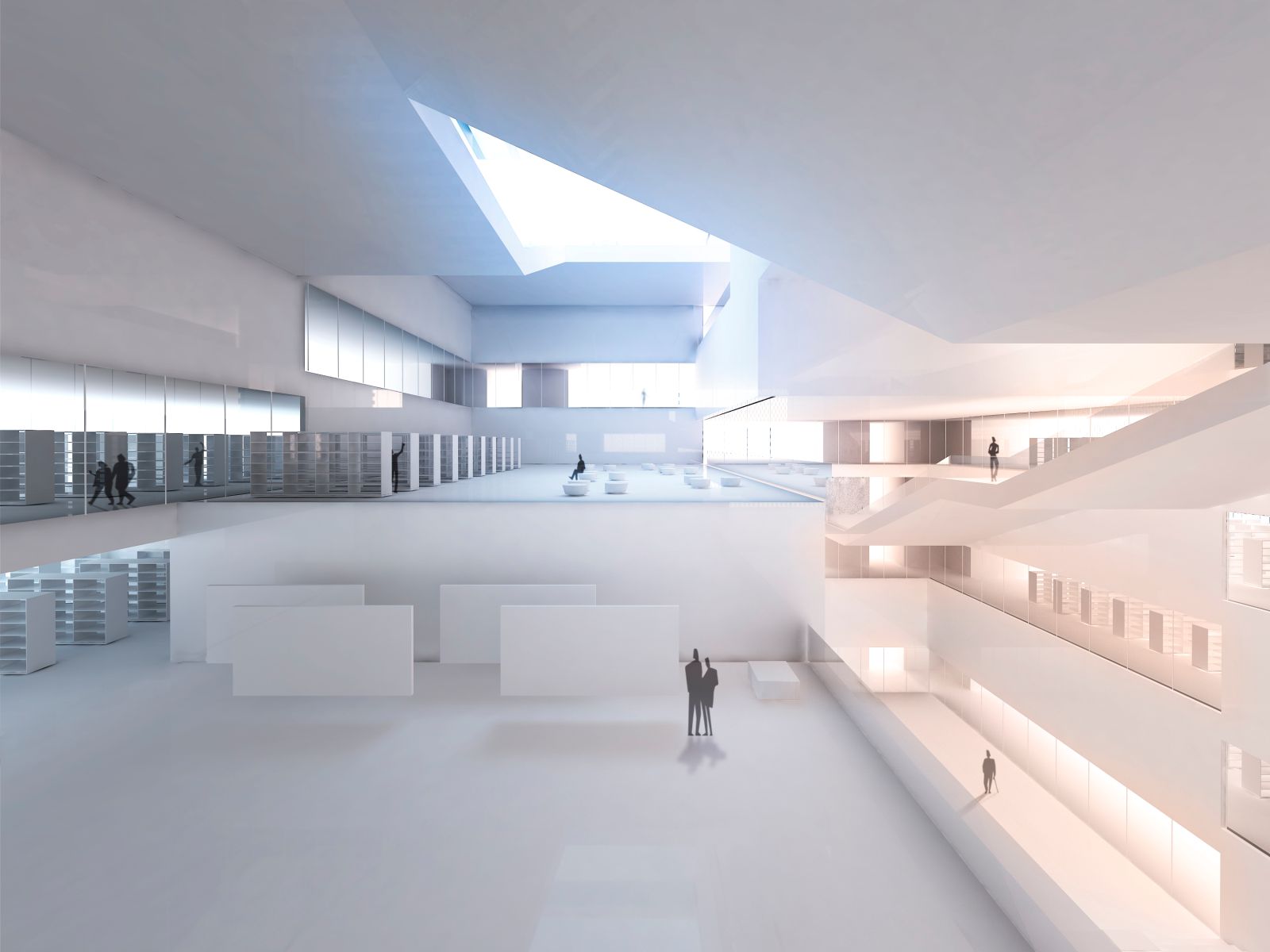
- Location: Tempelhof-Schöneberg, Berlin, Germany
- Architect: Delugan Meissl Associated Architects
- Project manager: Sebastian Brunke
- Project team: Michael Lohmann, Diogo Teixeira, Bogdahn Hambasan, Catarina Mendonça, Alejandro Carrera, Elisabeth Kofler, Francesca Caldesi
- Structural engineering: Vasko + Partner Ingenieure ZT GmbH, Ziviltechniker für Bauwesen und Verfahrenstechnik
- Building Services Engineering: Vasko + Partner Ingenieure ZT GmbH, Ziviltechniker für Bauwesen und Verfahrenstechnik
- Bulding physics: Vasko + Partner Ingenieure ZT GmbH, Ziviltechniker für Bauwesen und Verfahrenstechnik
- Façade: Vasko + Partner Ingenieure ZT GmbH, Ziviltechniker für Bauwesen und Verfahrenstechnik
- Landscape Design: Burger Landschaftsarchitekten, Susanne Burger und Peter Kühn
- Floor area: 52.088 m2
- Gross surface area: 84.542 m2
- Built-up area: 21.080 m2
- Images: Courtesy of Delugan Meissl Associated Architects



